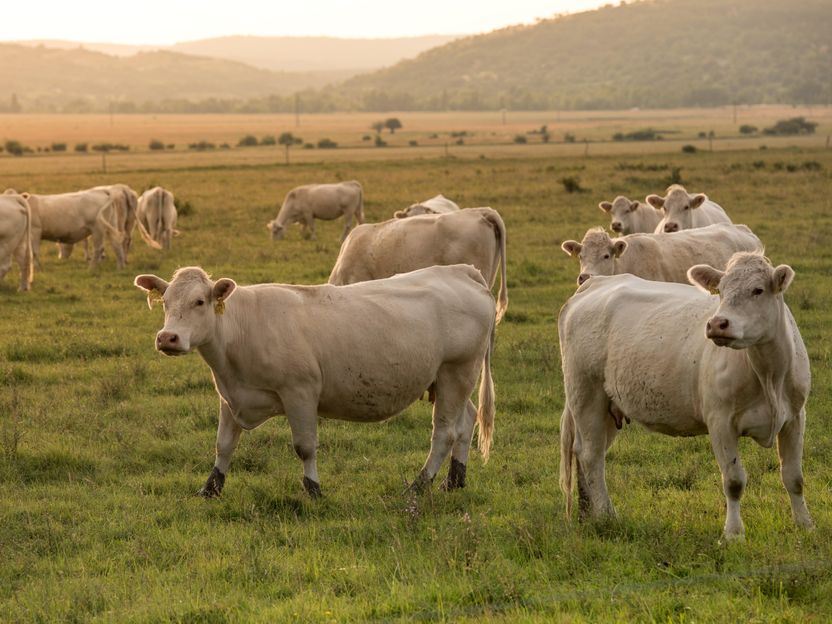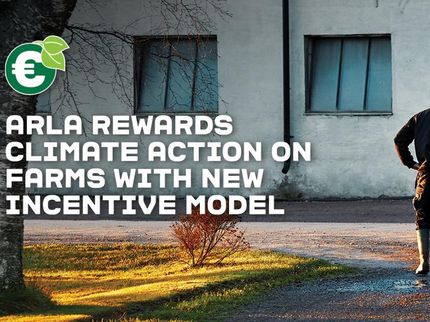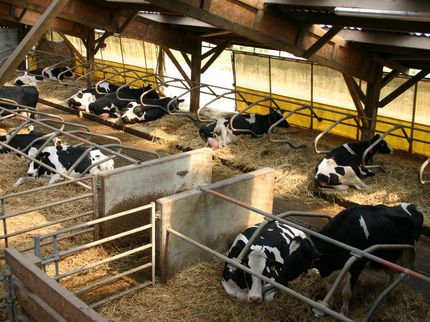Heat stress for cattle may cost billions by century’s end
Globally, by the end of this century low-income cattle farmers in poor countries may face financial loss between $15 to $40 billion annually, due to looming climate change.

Bild von Eszter Miller auf Pixabay
Looming climate change may be economically hard for low-income cattle farmers in poor countries due to increasing heat stress on the animals. Globally, by the end of this century those producers may face financial loss between $15 and $40 billion annually.
Farmers in tropical regions – including large parts of South America, Asia and Africa – are likely to suffer significantly, particularly when compared with producers in the world’s wealthier temperate zones, according to a study by an international team of scientists and economists published March 9 in the Lancet Planetary Health.
“Economic losses will mostly occur in low- and middle-income countries,” said Mario Herrero, professor of sustainable food systems and global change in the Department of Global Development, in the College of Agriculture and Life Sciences. “Relative to the total value of dairy and meat production, it’s a significant and a higher proportion than in high-income countries.”
Herrero, along with lead author Philip Thornton, of the International Livestock Research Institute and CGIAR; Gerald Nelson, of the University of Illinois, Urbana-Champaign; and Dianne Mayberry, of Commonwealth Scientific and Industrial Research Organisation (CSIRO), Australia, have published “Impacts of Heat Stress on Global Cattle Production During the 21st Century.”
Escalating demand for livestock products in low- and middle-income countries, along with steadily increasing global average temperatures, is an uncomfortable mix, the researchers said. If livestock are to adapt to new thermal environments and increase their productivity, infrastructural investments or adjustments – such as switching to more heat-tolerant cattle breeds, and improving shade, ventilation and cooling systems – will be required.
In the paper’s high greenhouse-gas emission scenario, cattle production losses from heat stress are estimated to be $39.94 billion annually, or 9.8% of the value of production of meat and milk from cattle in 2005 – the scientists’ baseline year. The low-emission scenario projects production losses at $14.9 billion annually, or 3.7% of the 2005 value.
By the end of the century, dairy and beef production in the United States is projected to decline by 6.8%, while India – a major dairy production country – is projected to lose more than 45% of its dairy farming due to heat stress increases.
“Resource-poor farmers in low-income countries depend heavily on their livestock for their livelihoods,” Thornton said. “The adaptation needs are even higher in these countries, and those farmers are the ones where the hit is even more severe.”
With climate change, farming and sustainability, Herrero suggested there is a need to create equitable adaptation practices “by design and to think intentionally on reaching the vulnerable sectors of global society,” he said. “We cannot just hope that the poor will not be affected.”
Technological development is key to bringing equity and social justice to poor farmers throughout the world. “Sustainability is not only about the environment and protecting biodiversity, but the human component is fundamental to sustainability,” Herrero said. “We need to deal with climate change, leaving no one behind. That’s the only truth.”
Herrero is a fellow in the Cornell Atkinson Center for Sustainability and a Nancy and Peter Meinig Family Investigator in the Life Sciences.
Most read news
Topics
Organizations
Other news from the department science

Get the food & beverage industry in your inbox
By submitting this form you agree that LUMITOS AG will send you the newsletter(s) selected above by email. Your data will not be passed on to third parties. Your data will be stored and processed in accordance with our data protection regulations. LUMITOS may contact you by email for the purpose of advertising or market and opinion surveys. You can revoke your consent at any time without giving reasons to LUMITOS AG, Ernst-Augustin-Str. 2, 12489 Berlin, Germany or by e-mail at revoke@lumitos.com with effect for the future. In addition, each email contains a link to unsubscribe from the corresponding newsletter.


























































